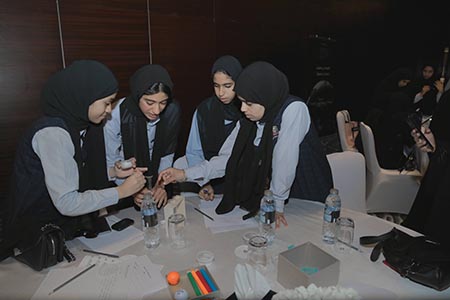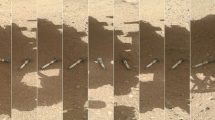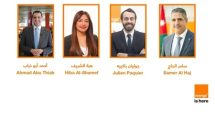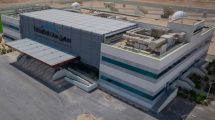
The Mohammed bin Rashid Space Centre (MBRSC) in collaboration with NanoRacks has hosted its ‘Science in Space’ initiative for students across the UAE as part of the UAE Astronaut Programme.
The MBRSC selected 50 students from 15 schools out of 750 applicants from 150 schools in the UAE. Each school team included four students and a teacher.
The workshops included a panel discussion with the two astronauts. A session organized by the educational outreach team of the UAE Astronaut Programme revealed the processes, tools and equipment used in conducting scientific experiments at ISS in a microgravity environment.
Key attendees at the workshops included His Excellency Yousuf Hamad AlShaibani, Director General of MBRSC, and Salem AlMarri, Assistant Director General for Science and Technology Sector, Head of UAE Astronaut Programme, UAE’s prime astronaut, Hazzaa AlMansoori, and Sultan AlNeyadi, the backup astronaut for the scientific mission to ISS.
The workshop also featured experiments from the curricula in schools across the UAE. Students were given the opportunity to conduct experiments that AlMansoori will implement aboard ISS.
Commenting on the level of participation at the science workshops, His Excellency Yousuf Hamad AlShaibani, Director General of MBRSC said: “The students displayed their enthusiasm and pride in participating in the scientific experiments. Students also expressed their creativity and passion for studying space science during the workshops.”
“The first Arab and Emirati astronaut’s scientific mission to ISS is a historic event for the UAE’s space sector and the entire region. It is essential that Emirati students take part in this journey and contribute to scientific experiments,” remarked AlShaibani.
“At MBRSC, we are committed to engaging students in space programmes, to prepare a generation of experts in STEM fields, especially space science,” he added.
AlMarri stated that the experiments conducted by students are an important part of the Emirati astronaut’s scientific mission to ISS in September.
Commenting on the inclusive space education approach adopted by the MBRSC, Salem AlMarri, Assistant Director General for Science and Technology Sector, Head of UAE Astronaut Program, said: “The results of the astronaut’s experiments will be sent to Earth by NanoRacks to compare them with the results of parallel experiments conducted on-ground by students in the UAE, to compare the two environments.”
The Science in Space initiative is funded by the ICT fund of the Telecommunications Regulatory Authority (TRA). Launched in 2007, this fund aims to support research and development within the ICT sector in the UAE.












Add Comment